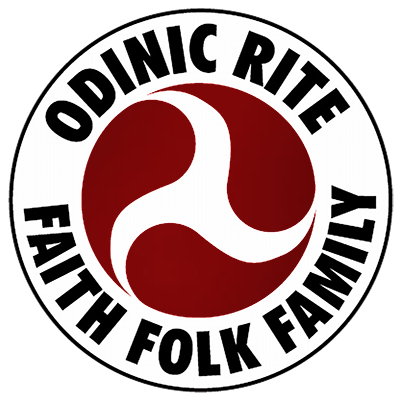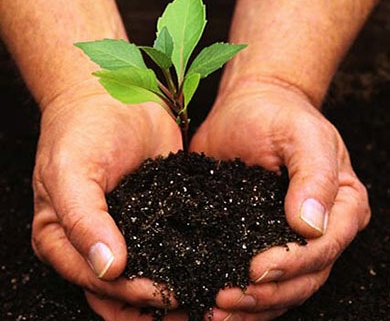The Return of Self Reliance
By Jennifer H AOR
“A secure individual knows that the responsibility for anything concerning his life remains with himself and he accepts that responsibility” ~Harry Browne
“Happiness belongs to the self sufficient.” ~Aristotle
Self Reliance is one of our NNV. We can be self reliant in any number of areas. However, I would like to take a moment to speak with you about the importance of self reliance in one of the most basic areas of humans existence. Food.
In all the millennia of our Folk’s existence we have been for the most part self reliant when it came to our food. Our ancestors did hunt, gather, sow and reap together. Charity was certainly shown to the orphaned and elderly, the infirm or the traveler or another such a one in need, but for the most part if you were an able bodied member of a family or community you were expected to contribute. You were expected to provide for yourself and your loved ones the basic necessities of life such as food and shelter. If you thrived you felt the confidence and happiness, the sense of accomplishment and self worth that came with being able to do this. If you did not put forth effort your lot was to suffer far more than just low self esteem.
However, in what can only be described as an extremely short period of time compared to our Folk history, the majority of us have lost this assuredness where our food is concerned. We can work to earn money to buy our necessities but if they are not available or beyond our finances we are left with nothing more than colored paper.
In the move from rural to urban, homesteader to shopper we have traded in our independence, security, vast stores of knowledge, planetary and personal health, and for what? Ease? A life of leisure? No. Not really. One kind of work was simply traded for another. Rather than work to produce our food and shelter by our own hands we now work to buy our food and shelter from the hands of others. But in this trade we put ourselves at a loss, for we have made ourselves dependant upon those whose only goal is to line their coffers or worse still whose goal it is to have a secure means of control over us.
Therefore I appeal to you that it is time we as Odinists resurrect the virtue of self reliance. For as we read of crop shortages and crop mutations, as more and more of our food is produced in countries not our own, as economies sour and inflation soars, it is most certainly a virtue whose time has come again.
But where do we start? Wisdom and knowledge wiped away over decades cannot simply be regained over night, no matter how much we wish it or how much we need it. So we regain our independence and our knowledge one step at a time.
1. Begin first by looking at your life. What are your needs? Your goals? Your strengths? Concerns? How much time can you devote to it? What skills should you develop? Make a list and work from it.
2. Do little things consistently that contribute to food independence. Some things such as a garden, really will take a lot of work and time. Other things can be done in such a short period that they can be fit into your week with ease. Perhaps once a week you might skip that show you don’t really care for anyway or decide not to play Farmville on Facebook. Instead you can take 30 minutes and make some butter or mozzarella cheese. Set some bread dough to rise or blanch bunches of spinach and put them in the freezer. Place your order in the seed catalog or start cabbage in the crock for sauerkraut.
I promise that 30 minutes spent doing any one of these things will leave you feeling better than 30 minutes of MySpace. Done repeatedly, you will eventually build skills and gain independence without feeling overwhelmed.
3. Find local suppliers of items you do not or cannot provide for yourself. Many local farms, gardeners, beekeepers and herbalists abound in rural areas and many travel to cities to sell their wares as well. Not only is it better for you and your local economy, but such people are usually a storehouse of information and are typically very happy to share such with you. Also in a crisis would you rather know that your food is down the road or across the country?
4.Stock up on items you cannot find locally or produce yourself. By just purchasing one extra item or deciding to spend an extra $5 to $10 during each trip to the grocers you will eventually have a pantry full of foodstuff. With all the things you are producing yourself also, you will have a great deal of peace of mind and sense of accomplishment when you look at your stocked pantry.
5.Educate yourself. Read, read and read some more. Attend classes and talk to people who are doing what you would like to do. If you have your list of skills you need and you are learning about those skills even when you cannot yet put that knowledge into action, then when the time arrives you will be ready. My husband and I have wanted to keep honey bees for years. We have been researching, reading, even attending a class on beekeeping. After years of this, the opportunity to keep bees finally presented itself and since we had prepared ourselves we were able to take advantage of it.
6. Educate others. As you learn how to do more things and be more self reliant, spread the wealth. As we help more and more of our Folk become self sufficient we become stronger as a people and as a community. We are able to come together to do bigger things and we are able to be an asset rather than a hindrance. If you are part of a hearth, you want your hearth to be strong and knowledgeable. Have hearth gatherings that focus on learning such skills. Knowledge gained of this sort will never be regretted.
Self reliance really boils down to committing to approach life in a new way, to making needful changes and cultivating useful habits. It is said that it takes 3 weeks to establish a habit. That means you could incorporate 17 new habits into your life in just one year’s time! What an amazing change that could make!
Gaining self reliance opens up many possibilities to see things differently. Now instead of ‘I need to get a gallon of milk at the store.’ It is ’I need to milk the cow/goat or visit the local farm where I can get milk to drink and use the milk fat to make butter, sour cream, whipping cream, etc.’ We begin to see new opportunities to provide for ourselves that had never occurred to us previously.
As we do we will increase our self esteem, independence and security. If we have children we will be passing along such priceless knowledge to them that can serve them in so many ways. We will know that no matter what the future holds, our children know how to provide for themselves and will have the security that brings.
It is important to not feel overwhelmed. You can become self sufficient. One step at a time, one skill at a time, one decision at a time. Do not feel discouraged that you cannot do everything at once. Everything you do is more than what you did before and that is the important thing.
Below are a few books that can help you begin your journey.
I wish you the best of luck and much pride in your hopefully many successes.
FFF/HTR
Jennifer H AOR
The Encyclopedia of Country Living by Carla Emery
The Complete Guide to Self Sufficiency by John Seymour
The Backyard Homestead by Carleen Madigan



Self sufficiency is an important virtue because the degree to which you are self sufficient is the degree to which you can be self determining as well.
FFF!
Thanks for the article. We as a Folk definitely need to become more self reliant like our ancestors. Food has always been used as a weapon throughout the ages and I believe it may be insidiously used today. I see a day when the ones who take heed to knowledge such as this will be the only ones able to weather the coming storm our Folk face.